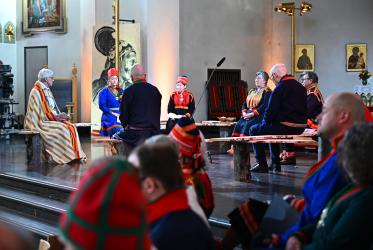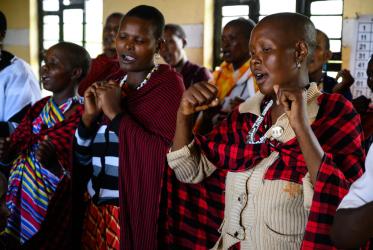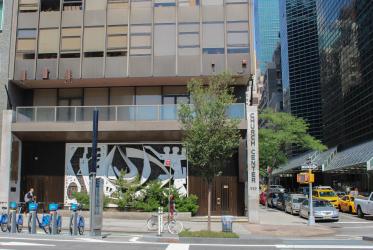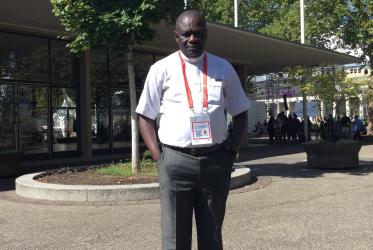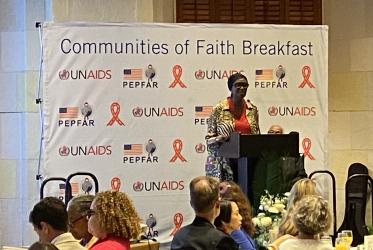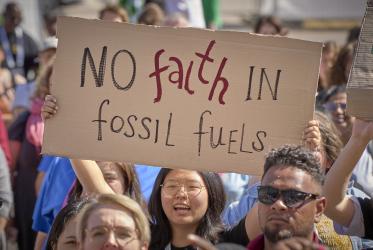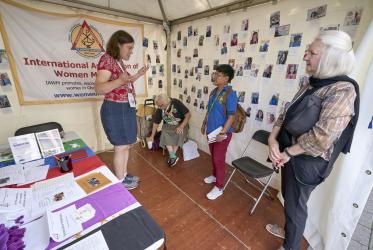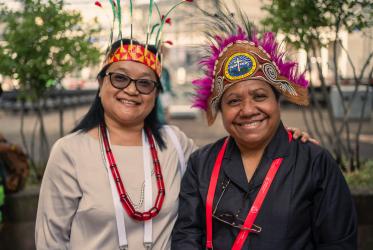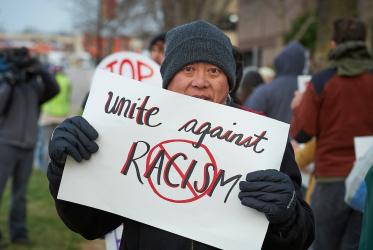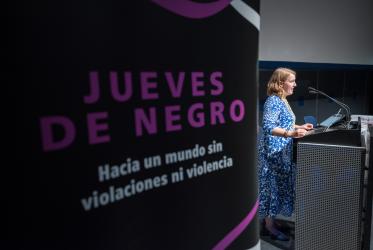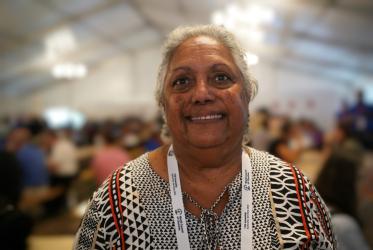Displaying 161 - 180 of 1719
27 October 2022
In New York City, the spirit of Thursdays in Black is thriving
06 October 2022
Assembly workshop looked toward ending AIDS epidemic by 2030
19 September 2022
Are you a #ThursdaysinBlack trailblazer?
08 September 2022
Promoting human dignity through art
06 September 2022
Indigenous women struggle for identity in Asia and beyond
05 September 2022
#ThursdaysinBlack: Stories flow from the Waterfall Tapestry
01 September 2022
Women with disabilities want to belong in churches
31 August 2022
